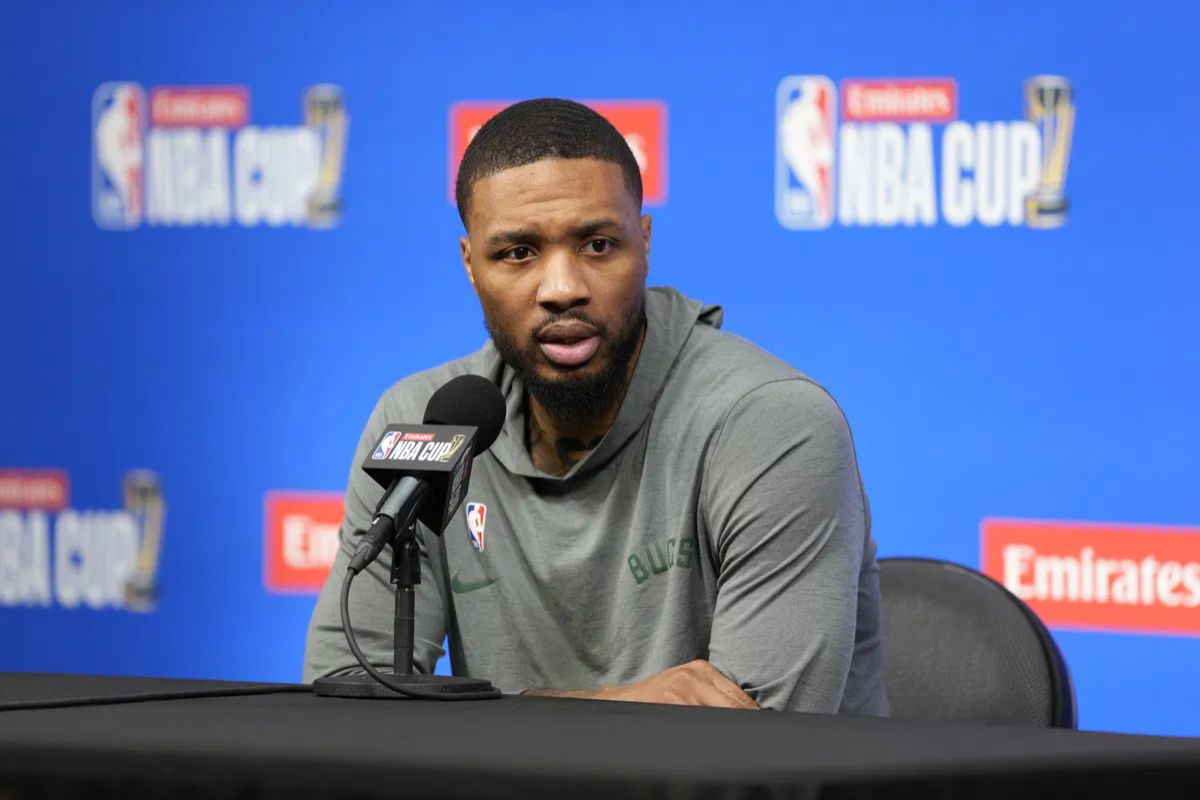

With the Bucks still paying his full salary, Lillard enters free agency with unprecedented flexibility: he can choose his next destination based on rehab fit and competitive timing rather than finances. That’s why there’s buzz around Boston: both he and Jayson Tatum are rehabbing the same injury, and reports say Tatum has been “actively recruiting” Lillard to rejoin him in the Garden.
Watch What’s Trending Now!
Boston’s front office has already moved on from veterans like Kristaps Porzingis and Jrue Holiday, making room for a potential double-Achilles tandem that could return synced up in 2026–27, aligning their recoveries and maximizing impact.
Then there’s Golden State, quietly constructing a mid-season pitch built on fit and immediate opportunity. Warriors sources suggest the plan is clear: bring Lillard in once he’s back in form, potentially as early as January, and plug him into a Steph Curry–led backcourt designed for spacing, playmaking, and vaulted offensive upside. It’s the polar opposite of Boston’s long-term rehab project, offering Lillard a shot at a quick postseason reintegration into a lineup that already knows how to win. On paper, Lillard fits that plan. But not everyone’s buying it. NBA insider Jake Fischer, for one, sees things through a colder, more skeptical lens.
ADVERTISEMENT
On a recent episode of The Garden Report, Fischer sat down with Bobby Manning to unpack Damian Lillard’s next move. When asked about a potential Celtics landing, Jake didn’t mince words. “I think he has every reason not to sign, right, and just kind of wait it out and be like the big mid-season acquisition somewhere. If he wants to sign somewhere now. I mean, the most benefit he would have is to get full support for his rehab.” Rehab-wise, Achilles recovery isn’t a one-size-fits-all process—it hinges on structured timelines and specialist support. That’s not just talk—it highlights how signing now with Boston might lock Lillard into a timeline that doesn’t match his body’s needs. Waiting could allow him to join a team after hitting key recovery benchmarks, stepping into a proven system when ready, instead of syncing his healing to Boston’s busy schedule.
Fischer then highlights another layer beyond basketball: stability. With the Bucks covering his $113 million through their stretch, Lillard isn’t under financial pressure—something Fischer underlines: He’s made hundreds of millions of dollars in his career. He’s got this whole estate out in Portland where he spends most of his time in the offseason and stuff, as is like I don’t think he has any reason to do that.
Whatever the case, there’s still no solid proof Damian Lillard plans to sign with the Celtics. It’s all smoke, and no fire (for now). But even before Lillard hit the market, Golden State had quietly surfaced among the teams reaching out.
ADVERTISEMENT
Why Missing Out on Lillard Hurts the Warriors
Outlets reported, execs confirmed “Warriors have interest in Damian Lillard,” and Marc Spears noted it was not just a rumor—they actually contacted him after Milwaukee waived him. While Lillard previously said he wouldn’t join the reigning champs out of respect, sources now suggest that this unprecedented stretch deal could reshape his willingness.
ADVERTISEMENT
That outreach underscores what the Warriors stand to lose. Golden State is heading into this offseason with a narrower buffer: they just lost Kevon Looney, and their focus is splitting between re-signing Jonathan Kuminga and courting veteran Al Horford. If Lillard signs elsewhere, they’re left chasing marginal upgrades or late-season additions instead of landing a 25‑point-per-game All‑Star who fits seamlessly next to Curry. Their backcourt spacing and secondary playmaking—already a concern during Curry’s hamstring absence—would take another hit.
Losing Lillard also means missing out on a functional “death lineup” capability for 2026–27. Analysts from Fadeaway World even speculated that pairing Dame with Steph and Draymond could form one of the most lethal offensive cores since the 2017 Warriors. Without him, Golden State may need to pivot to more modest supplemental moves rather than chasing immediate super-duo creation. That’s the real weight behind the “bad news”—it’s not just that the Warriors didn’t sign him, but that their window for a championship-caliber offense has narrowed considerably.
ADVERTISEMENT
ADVERTISEMENT
ADVERTISEMENT